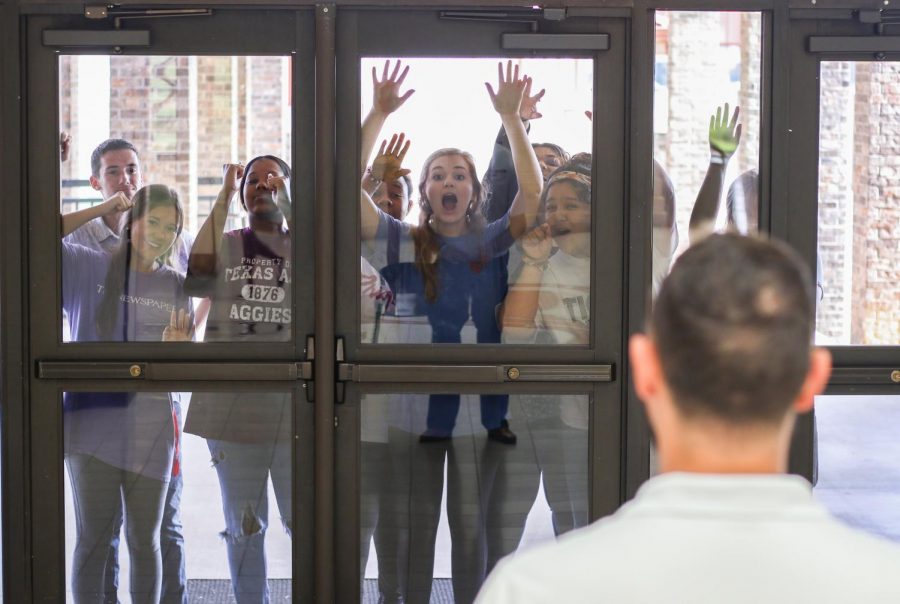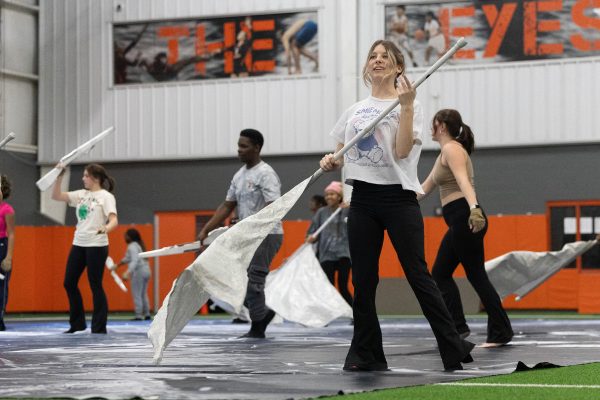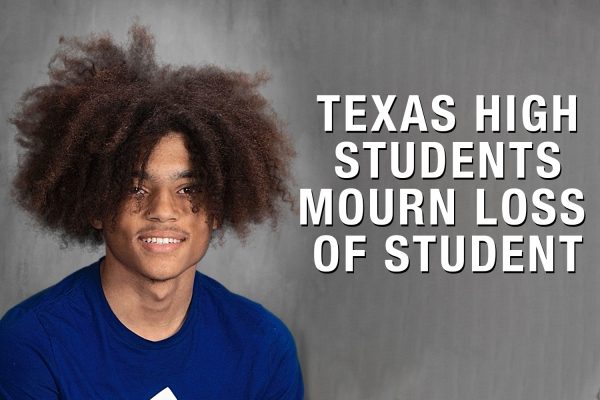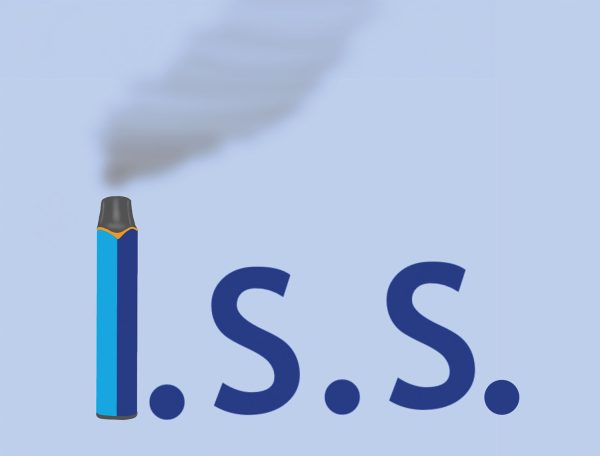No note, more problems
Students must think ahead to get pass for teacher help
Students are required to have passes in order to go to a teacher’s classroom before school. This requirement limits accessibility to teacher’s for those students who needs help on assignments before school. Administrators encourage students to think ahead and obtain a pass for those classes they have trouble in.
October 2, 2018
Students often find it hard to make time to get help in classes they struggle with, so many attempt to find help from teachers before school. However, only with a note from a teacher may a student access assistance in the morning before school. The note policy has become an area of concern among students and teachers alike because it limits the availability of teachers who are willing to help students in the morning.
“We are responsible for [students’] safety and their whereabouts,” principal Carla Dupree said. “There aren’t people upstairs and around the building monitoring, and so we have to have clear communication that [where they say they’re going] is where they’re going.”
Administration can only stretch itself so far, but many teachers are also willing to lend a helping hand.
“I think students who are coming in for help, for the most part, are legitimately coming in for help,” engineering teacher Julie Suelzer said. “Most of us are up here at 7:30, and anytime I’ve ever seen a kid in the hall in the morning, I ask them what they need, if I can help them, and I invite them in my room to wait for a teacher.”
According to Suelzer, the students coming in before school are students who really do need assistance.
“The kids we see coming in for help are usually the same kids,” Suelzer said. “We have to make sure we’re giving students the accessibility they need to get to the teachers that are happy to help them and are willing to be here at anytime.”
Students are also frustrated with the system, especially those with after school commitments.
“The help is right there, but I still can’t get to it,” junior Shelby Steele said. “It’s frustrating that I know my teachers are willing to help me in the morning, and they want to help me in the morning, but they’re still not able to because I can’t get in.”
Students like Steele struggle to find time in their busy schedules to get help from teachers.
“I’m involved in theater, and as everybody knows, we have a very busy schedule,” Steele said. “A lot of the time we either have an [International Thespian Society] meeting or practice right after school. It gives me less flexibility whenever it comes to getting help from teachers after school. If I have to make up a test, I have to go before school because I need to go straight to [theater] right after school.”
Administration does offer some resolutions to the issue.
“My suggestion, even if [students] say they don’t have an opportunity, is to think ahead,” Dupree said. “If you know you have trouble in a particular course, tell that teacher, ‘I need to come see you regularly in the morning. Can you write me a note that says I’ll be coming back and forth to your class?’ And once that becomes the routine, and that person on duty knows, you can flash that note and keep going. Just think ahead, plan ahead.”
Even teachers are unclear about the guidelines for writing general notes.
“[Getting a general note] is a possibility, however, that needs to be communicated very well to the assistant principals patrolling the halls because if students have a note for the whole year, sometimes the person that stops them will tell them that it’s not acceptable, or they’ll have notes taken up, and they’ll have to get another one,” Suelzer said. “Sometimes it’s been encouraged and sometimes it’s been discouraged.”
Sometimes the protocol has even affected students’ grades.
“I really have [had a difficult time on tests because of this policy],” Steele said. “Freshman year, I had trouble in algebra that I needed help on, and I just didn’t even know how to get help. I didn’t know anybody who could help me, and that was really frustrating. It definitely affected my grade.”
Teachers are typically understanding of students’ circumstances and want to help in any way they can.
“A lot of times, students don’t remember to get a note or don’t see the teacher the day they need help, and I feel like students need access to teachers as much as possible,” Suelzer said. “There are a lot of times that kids might come in for help and I don’t know they’re coming. They don’t have accessibility to me to get a pass, and they don’t know until the night before that they need help.”
Teachers like Suelzer have their own ideas for a solution to the problem.
“I understand the reasons for [the policy], but there should be a way for them to contact us,” Suelzer said. “We really need to work on accessibility. I have an open door policy, but the only problem is they can’t get to the door.”





















